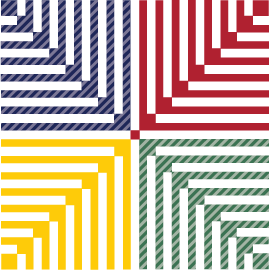Ameen Nayfeh’s award winning film 200 Meters opens the 2021 Boston Palestine Film Festival. Director of Programming Michael Maria connected with Ameen to learn more about this Palestinian thriller that follows the dramatic efforts of a father trying to unite with his son on the other side of the Israeli segregation wall.
Q: 200 Meters is your first feature Narrative film. How did filming and production compare to your previous shorts such as The Crossing? What particular challenges did you face?
A: I cannot compare, because it’s very different, there’s a huge difference between making a short and making a feature film, in my short films I was dealing with a very small crew, three to four actors, in 200 Meters it was 35 cast, 55 locations, I don’t know the crew it was sometimes like 40 people working, so it was a big difference not just in the size of the team and the cast but also that comes with responsibility toward the project. The biggest challenge was also financing, 200 Meters was a very long and difficult journey. For the shorts, some I did with friends and some I did with very very very small budgets, but 200 Meters couldn’t have been done like that because we needed to tell the story properly and we had to wait to find the money to be able to tell it, and that was the biggest challenge, I would say.
My challenges as a filmmaker was that I have to focus with an enormous cast, I have to pay attention to everything, I have a huge responsibility, working with Ali Suleiman, I had a German actress, I had first time actors, so I had a very different dynamic and levels of experience that I had to cope with. It was tough, this is what I can say, it was really tough, it was not easy. But I had the support; I was supported by Ali Suleiman, by my director of photography, by everyone, so it was tough but it was also, I had the support that I needed.
Q: What aspects of Palestinian experience and life were important for you to capture within 200 Meters?
A: The daily life and how we deal with living, like how is to live under occupation in our daily life, because this is a thing that I have not seen in any Palestinian film, just a raw story following people in their daily life traveling in the West Bank, this was not told before, and I think the amount of details that I wanted to put in 200 Meters, I think it made a difference because I keep hearing this from many audiences around the world where I travelled or where I had Zoom calls with film festivals, and also I received any messages on my social media accounts, that people thank me for putting all of these details and for telling a real story. It’s a real story and everyone who watches 200 Meters, they appreciate the reality of the situation, of the characters, of the locations, and this is what I really wanted to tell. I wanted to put the audience into this journey where they see with their own eyes how it is today to live in Palestine, to live under occupation, to live with something called a wall and an apartheid system.
Q: Ali Suleiman, star of 200 Meters, is one of Palestine’s most prolific modern actors, and is joined by a talented and diverse cast. Could you speak to the casting and selection process?
A: When I started writing the script in 2013, I already saw Ali Suleiman as Mustafa, the main character, he was in my mind. Actually, because the first film I saw in the cinema was Paradise Now with Ali Suleiman, and since then I was like “this guy is amazing, he’s a great actor”, and I followed up with his work. As soon as I started to write, I saw him as the character of Mustafa, and when he finally read the script and I told him this information that I wrote the script and I only want to work with you, he was very happy and appreciated this big fan. And he’s amazing, he won five best actor awards for 200 Meters through today, in El Gouna Film Festival, Venice International Film Festival, in Morocco Cassablanca Festival, etc.
About the rest of the cast, I did the casting myself, together with (producer) May (Odeh). We did not have a casting director, and I was keen on selecting the actors and actresses somehow with similar background to the characters they are portraying, because I wanted things to come natural and spontaneous as if they were not acting. So I think (for) 80% of my cast, it was their first time on screen. Some come from theater background, some from artistic background. I was very lucky with my cast because they were great and really delivered what I wanted. Also Lana Zreik, the amazing actress who did the role of Salwa, she is a professional actress but she disappeared from the scene because she had three beautiful daughters and she was just taking care of her family. Then May sent her the call for auditions and she sent us a video, and I thought “this is Salwa”, because she is a mother, and when she was reading the lines of her audition, she knew what she was talking about, and I felt this strength and vulnerability in her performance and I thought “this is Salwa, definitely”.
What helped me also in giving the performance which I get many compliments for, is that before we shot the film when we were reading the script, we had the tech read and everyone is reading their lines, and also making suggestions for the dialogue so there was a window for improvisation when we were reading the script. So the jokes became better, there were some nice moments, etc, so I was open to hear from the cast and to add or to remove things from what I had written in the dialogue, and I think that was also another push for the script and for the story.
Q: 200 Meters was produced by May Odeh, whose production company has produced tens of popular and successful Palestinian films. Could you speak to your working relationship with Odeh Films and the successful partnership?
A: May Odeh is my friend. Actually, my first film I worked on after I finished film school was with May. She was producing a short film and I worked as a grip, and during production I went to her and told her “look, I can do more than a grip, i can work as a first AD (Assistant Director), I can do many things”, and she told me about another project she was working on. She took me as a second Assistant Director to a feature film, she was the production manager, and then our work relationship got stronger and stronger. Then I started to work for her production company as an in-house editor and sound recordist with May for a long time. During this time, we started to work on 200 Meters together. So we teamed with the project in late 2013, we said we would do this film, she believed in it. Although I thought it would take one or two years, I didn’t think it will take so long, but she believed in the story, and in me, and we started working and developing and going to workshops, and applying for funding, and she was fighting all the way. Although there were many moments when I almost gave up, but she was like “You have to do this, you have to tell this story”. And we are still of course working together, so inshallah in the future you will see more of Ameen Nayfeh and May Odeh.
Q: Anything else about the film or yourself you’d like our audience to know about?
A: I would like to say that the film is not my personal story, but it’s inspired by my personal story and experience. My mother’s family, half of my family, is living on the other side of the wall. Before the wall was built, I could take a taxi from my city and just go to my grandparents and my uncles. After the wall was built, it was not an option anymore. So I was forcefully separated from my family, and this caused lots of bad memories and trauma. I was traumatized, you know? And growing up in Palestine with this situation, living the second Intifida and the building of the wall, and watching watchtowers and checkpoints coming into our lives, it was not easy. Also the many stories I heard of many families who were suffering because of the wall, because of restriction of movement, etc, this is what pushed me to tell this story. So it’s not a story that I’m just telling because I think it’s important. It’s very important, but also it is a story that I am still living. And I finally asked the question “Is it fine? Is it normal for anyone around the world to live such a life in 2021”?


